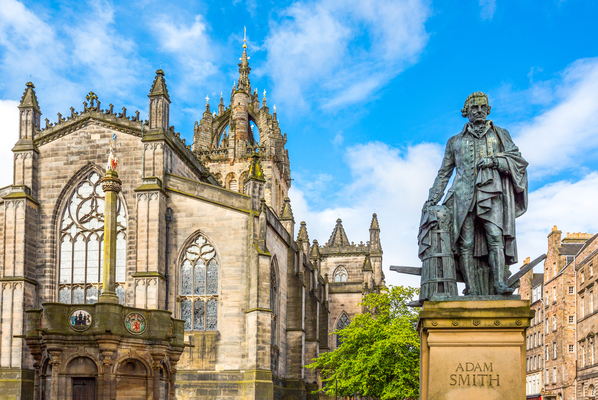Capitalism is a system of largely private ownership that is open to new ideas, new firms and new owners—in short, to new capital. Capitalism’s rationale to proponents and critics alike has long been recognized to be its dynamism, that is, its innovations and, more subtly, its selectiveness in the innovations it tries out. At the same time, capitalism is also known for its tendency to generate instability, often associated with the existence of financial crises, job insecurity and failures to include the disadvantaged. But what is capitalism? Herewith more detail explanation about capitalism and its founder Adam Smith.

One of the first and most persuasive advocates of modern capitalism was Adam Smith. A Scotsman, Smith became (and still remains) the prophet of the new economic order. In his great work, The Wealth of Nations, he explained why capitalism is the most effective economic system. It is to his credit that contemporary defenders of the principle parrot his basic arguments.
The word “capitalism” derives from the word capital, itself deriving from the Latin word caput, meaning head (as in a head of cattle or chattel; a unit of movable wealth). In capitalism, money takes the place of cattle as the unit of movable wealth, and that wealth’s use and circulation through acts of exchange are privately determined by individuals, not the government. Capitalism is thus a system of social organization by which private money-making (the build-up of capital, of “herds” of money) is its chief end. Adam Smith defended this way of organizing human affairs, not just in pragmatic terms, but on moral ones, upending millennia of religion-based admonitions that one should aver selfishness. In Smith’s view, pursuing one’s interests to the general indifference of what happens to strangers is actually central to national prosperity. Free and mutually beneficial trade does a better job of assuring the general welfare than either selfless sharing or charity does:
The fundamental theme of The Wealth of Nations is what Smith’s later supporters termed the doctrine of laissez-faire (“hands-off”) capitalism. The doctrine held that the world of economics functions under “natural laws” (laws discovered in nature) which operate exclusively of politics. Government intervention in the economic order of things will upset these “natural laws” and thereby disrupt a nation’s economy. However, by maintaining a “hands-off” policy and allowing private citizens complete economic freedom, governments can ensure the growth of a nation’s wealth.
Smith realized that under a free enterprise system, individuals would pursue their own self-interests. Anticipating his critics, Smith contended, however, that selfish individuals, with the help of an “invisible hand” (i.e. competition), would be con-tributing to the welfare of all. In other words, in order to build and maintain a flourishing and profitable company, a businessman’s products would have to be needed, well made, and competitively priced. If not, he would be unable to compete successfully with others also pursuing their self-interests. Morever, he would be creating jobs and helping to expand the general economy. Thus the “natural laws” of economics, when unrestrained, would profit not only industry but government and labor as well.






